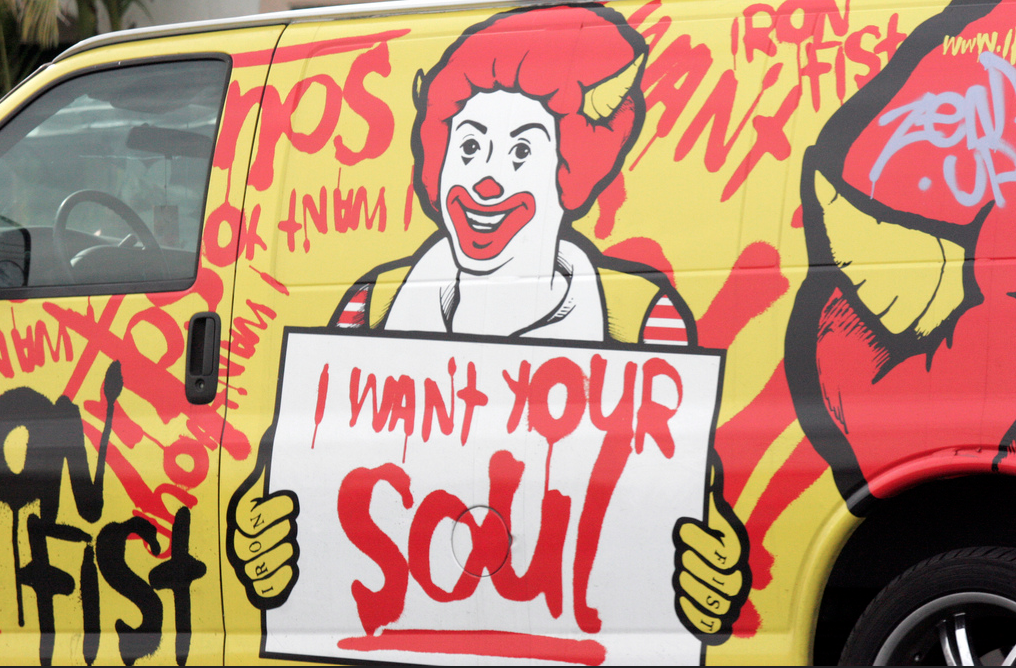Ronald McDonald Won’t Sell Burgers At Your Kids’ School, But He’ll Talk About Bike Safety
The folks at Campaign for Commercial Free Childhood were pleased earlier this summer to hear McDonald’s CEO Don Thompson tell shareholders that “we don’t put Ronald out in schools” and “in schools and our restaurants you never see Ronald McDonald,” as these statements seem to imply that the company is not using creepy clown Ronald McDonald to sell its food to kids.
But when the CCFC asked the chain about Thompson’s statements, McD’s VP of Corporate Relations clarified what the CEO actually meant:
To be clear, there is no new policy regarding Ronald McDonald. Mr. Thompson was correct in stating that “we don’t put Ronald out in schools.” Obviously, only schools or affiliated groups manage their invited guests. When invited to schools by administrations, or affiliated organizations such as parent-teacher groups, Ronald McDonald presents programs about bike safety, literacy or other children’s well-being matters.
So McDonald’s doesn’t put Ronald in schools, but it won’t say no if a school invites him to talk about a topic that has absolutely nothing to do with the very thing that children around the world associate him with.
To some, that’s like inviting Peyton Manning to speak about the proper use of propane grills, or having Christina Aguilera come by to talk about finding a summer job. Regardless of the topic being presented, a good chunk of the audience is still thinking about the previously held unrelated association with the speaker.
Additionally, the use of Ronald to push things like literacy and safety can be seen as window-dressing to improve the company’s public image by associating its most iconic character with education.
It’s not unlike the accusations that McDonald’s is using its affiliation with the Ronald McDonald House charities as a cheap way to put a positive PR spin on the company, even though it often provides minimal support to these organizations.
The CCFC and dozens of other groups have written to Thompson, daring him to publicly company policy regarding Ronald McDonald’s in-school visits, and to clarify whether this policy applies to schools in other parts of the world, like Brazil, China, Australia, and The Netherlands, where the freakish clown has been talking to kiddies in schools.
The groups also want McDonald’s to explain why, if the company doesn’t put Ronald in schools, several local McD’s sites continue to advertise his availability for in-school appearances.
“If you are accurate that Ronald McDonald is never seen in schools, we would applaud McDonald’s decision to end the exploitative practice of using him to market to children in schools,” reads the letter. “If not, we urge you to change McDonald’s policies to be in line with your characterization of them.”
Want more consumer news? Visit our parent organization, Consumer Reports, for the latest on scams, recalls, and other consumer issues.


